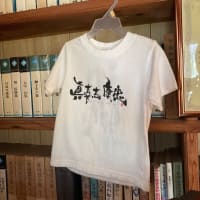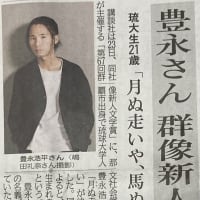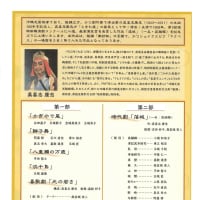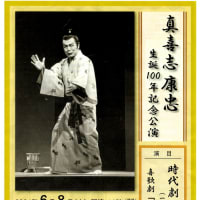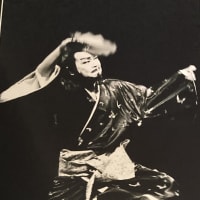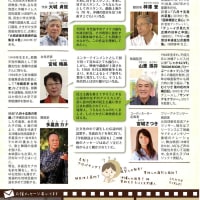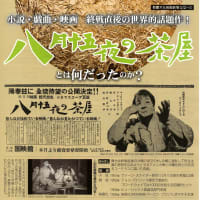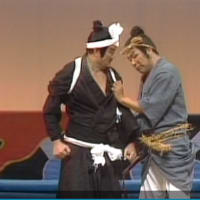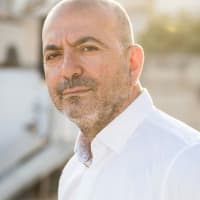以下は先日のGolden Globe 賞の受賞スピーチですが、黒人差別の歴史の経緯が話されますね。黒人女性たちの勇気ある告発と人権、平等を求める声とその運動の現在としてのアメリカなんですね。人種差別の過酷さ、それが現在にまで尾を引いていることは確かですね。マイノリティー差別の歴史の現在、女優から、トークショーホストとして成功した話術の天才が獲得したもの、貧しい母の姿を見ながら、かつハリウッドで成功した黒人俳優Sidney Poitierの晴れ姿をテレビで見た日から、夢を追いかけてきたのですね。凄いですね。マイノリティーゆえの成功の秘訣もあったかもしれません。天性、天分が過去からの恩恵だということを踏まえていますね。個人と社会の関係性、歴史の現在、表現、映画、ことばの力ですね。
Full text of Oprah Winfrey's speech at 75th Annual Golden Globe Awards
January 10, 2018 (Mainichi Japan)
REESE WITHERSPOON: There are a lot of people known on a first-name basis, but there's only one person whose name is a verb, an adjective, and a feeling. And that is Oprah.
(Applause.)
When you say her name, everybody stops and listens. Just try it. Say to the person next to you right now, "Oprah just texted me the funniest thing." Trust me, they're going to stop everything and look at their phone.
I got to work with Oprah on our movie "A Wrinkle in Time," where we spent four hours in the makeup trailer almost every day. Guys, if you can find a way to be stuck in a small space with Oprah for four hours, do it. It's like going to Wharton Business School combined with a spiritual retreat, all in one. I learned everything from how to make the best English muffin, to what it's like being the only woman as a board member at a huge company. And her hugs? OK, Oprah's hugs could end wars, solve world peace. It's like your oldest, dearest friend has just seen you after the longest journey of your life. It's that good. When she hugs you, it's the greatest thing ever. Just ask Gayle, she'll agree.
When I learned I'd get to introduce Oprah tonight, I began asking people, "If you could say one thing to Oprah, what would you say?" And they all said different things, but every answer started the same: Tell her thank you. Tell her thank you for teaching us, for inspiring us, for encouraging us. Thank you for seeing us."
So, Oprah, thank you for your grace and your generosity and your wisdom. And thank you for your powerful contributions to the world of film and television. In this and everything you do, you've changed our lives.
(Applause.)
(Clip shown.)
OPRAH WINFREY: Hi. Thank you. Thank you. Thank you all. OK. OK. Thank you, Reese. In 1964 I was a little girl sitting on the linoleum floor of my mother's house in Milwaukee watching Anne Bancroft present the Oscar for Best Actor at the 36th Academy Awards. She opened the envelope, and said five words that literally made history: "The winner is Sidney Poitier." Up to the stage came the most elegant man I had ever seen. I remember his tie was white and, of course, his skin was black. And I'd never seen a black man being celebrated like that. And I have tried many, many, many times to explain what a moment like that means to a little girl, a kid watching from the cheap seats as my mom came through the door, bone tired from cleaning other people's houses. But all I can do is quote and say that the explanation in Sidney's performance in "Lilies of the Field," "Amen, amen. Amen, amen." ≪1964年、貧しい少女の頃第36回アカデミー賞最優秀俳優にSidney Poitierをテレビで見た感激)
(Applause.)
In 1982 Sidney received the Cecil B. DeMille Award right here at the Golden Globes, and it is not lost on me that at this moment, there are some little girls watching as I become the first black woman to be given this same award.
(Applause.)
It is an honor -- it is an honor and it is a privilege to share the evening with all of them and also with the incredible men and women who inspire me, who challenge me, who sustain me, and made my journey to this stage possible. Dennis Swanson, who took a chance on me for "AM Chicago." Quincy Jones, who saw me on that show and said to Steven Spielberg, "Yes, she is Sofia in 'The Color Purple.'" Gayle, who has been the definition of what a friend is. And Stedman, who has been my rock. Just a few to name. 彼女の女優歴と感謝の思い。カラーパープルのソフィア役だったのですね。
I'd like to thank the Hollywood Foreign Press Association because we all know that the press is under siege these days, but we also know that it is the insatiable dedication to uncovering the absolute truth that keeps us from turning a blind eye to corruption and to injustice ...(メディアへのリップサービス)
(Applause.)
... to tyrants and victims and secrets and lies. I want to say that I value the press more than ever before as we try to navigate these complicated times, which brings me to this: What I know for sure is that speaking your truth is the most powerful tool we all have. And I'm especially proud and inspired by all the women who have felt strong enough and empowered enough to speak up and share their personal stories. Each of us in this room are celebrated because of the stories that we tell. And this year we became the story. But it's not just a story affecting the entertainment industry. It's one that transcends any culture, geography, race, religion, politics, or workplace. So I want tonight to express gratitude to all the women who have endured years of abuse and assault because they, like my mother, had children to feed and bills to pay and dreams to pursue. 昨今の#Me too運動との関係ですね。多くの女性達があらゆる場で夢を実現するために頑張ってきたこと。真実を語ること、物語の強さについて。文化や場所、人種、宗教、政治、職場を越えてつなぎ会える物語!
(Applause.)
They're the women whose names we'll never know. They are domestic workers and farm workers. They are working in factories, and they work in restaurants, and they're in academia and engineering and medicine and science. They're part of the word of tech and politics and business. They are athletes in the Olympics, and they are soldiers in the military. And there's someone else: Recy Taylor, a name I know and I think you should know too. In 1944 Recy Taylor was a young wife and a mother. She was just walking home from the church service she'd attended in Abbeville, Alabama, when she was abducted by six armed white men, raped, and left blindfolded by the side of the road coming home from church. They threatened to kill her if she ever told anyone, but her story was reported to the NAACP, where a young worker by the name of Rosa Parks became the lead investigator on her case. And together they sought justice. But justice wasn't an option in the era of Jim Crow. The men who tried to destroy her were never persecuted. Recy Taylor died 10 days ago, just shy of her 98th birthday. She lived as we all have lived, too many years in a culture broken by brutally powerful men. For too long women have not been heard or believed if they dared to speak their truth to the power of those men, but their time is up.(Recy Taylorさんは若い黒人女性で母親だった。6人の白人男性に誘拐、レイプされ目隠しされ、路上に放り投げられた。1944年の出来事。被害届をすると殺すよの脅迫を受けながら告発した勇敢な女性、しかしレイプ犯たちが検挙されることはなかった)
(Applause.)
Their time is up. Their time is up. And I just hope ... I just hope that Recy Taylor died knowing that her truth, like the truth of so many other women who were tormented in those years and even now tormented, goes marching on. It was somewhere in Rosa Parks' heart almost 11 years later when she made the decision to stay seated on that bus in Montgomery. And it's here with every woman who chooses to say, "Me too" and every man, every man who chooses to listen. In my career what I've always tried my best to do, whether on television or through film, is to say something about how men and women really behave, to say how we experience shame, how we love and how we rage, how we fail, how we retreat, persevere, and how we overcome. I've interviewed and portrayed people who have withstood some of the ugliest things life can throw at you, but the one quality all of them seem to share is an ability to maintain hope for a brighter morning, even during our darkest nights. So I want all the girls watching here now to know that a new day is on the horizon.最後は希望で締めくくっていますね。真っ暗の夜でも明るい朝がやってくる。地平線上に新しい日がやってくるのですね。
(Applause.)
And when that new day finally dawns, it will be because of a lot of magnificent women, many of whom are right here in this room tonight, and some pretty phenomenal men fighting hard to make sure that they become the leaders who take us to the time when nobody ever has to say, "Me too" again. Thank you.(誰も#Me tooと言うことのない未来へ!)
(Applause.)
***********以下はインタビューですね!
Backstage interview:
OPRAH WINFREY: Okay. Hi. How does this work? Oh, you ask questions of me. All right. Hello.
Q Your speech tonight was so -- I'm right here.
OPRAH WINFREY: There you are.
Q Your speech was so amazing and inspirational. I want to know what you feel is the greatest lesson you've learned throughout your life and career?
OPRAH WINFREY: The greatest lesson I've learned throughout my career came from Maya Angelou, actually, when I was first meeting her. And after I'd known her for a while, she said, "Baby, you know, you need to know that when people show you who they are, you believe them the first time." Oh, you know that lesson, too, now? Yes, I do. The first time. And your problem is it takes you 29 times. This is the same lesson coming in a different skirt wearing a different pair of pants. So I think that has been one of my greatest wisdom teachings, is to assess from people's behavior their actions, not just towards me, but towards other people, who they are and how they behave. Because if people talk about other people, they'll talk about you. So I think in business and personal relationships, that's always been my greatest lesson. Also staying grounded, you know, has been really great for me.
Q You are on top of the world. We love you. What humbles you right now?
OPRAH WINFREY: What humbles me?
Q Yes.
OPRAH WINFREY: This humbles me. When I first got -- when they first called me and said they wanted me to accept this, I said, "I shouldn't be the person to get the Cecil B. Demille award." I was working with Reese Witherspoon this past spring and winter, and I happened to just say in the makeup room one morning, "Oh, how many movies have you done?" "I don't know. It's been so many." And then I thought, "I hope they don't ask me because I think it's been five." And so I didn't understand it, and then they explained that it's about overall entertainment. Now, what I was able to do with the Oprah show and the cultural statement we were able to make throughout the world, I feel very, very, very proud of that, but I think that when it comes to films, that I am really the new kid on the block, and I always feel like when I'm acting, that I am out of my box. It's the most intimidated I ever feel.
Q I'm curious what wisdom you could pass on to me and my friends who were filmmaker scholarship recipients of the Hollywood Foreign Press. What could you pass on to the future generations of Hollywood that wants to make films?
OPRAH WINFREY: The way you make movies is to do stuff you love. You know, for 25 years I worked on the Oprah show, and I will tell you there were nights when I came home and it was hard to even take off my clothes because I knew I was going to be getting up four hours later. But I never really felt exhausted, like depleted. I felt exhausted, but I never felt depleted. So do the work that comes straight from the soul of you, from your background, from stories that you've grown up with, from stories that bring your passion, from stories that you are not just drawn to tell it, but if you don't tell them, they don't get told. And when you are operating, you know, the single greatest wisdom I think I've ever received, other than when people show you who they are, is that the key to fulfillment, success, happiness, contentment in life is when you align your personality with what your soul actually came to do. I believe everybody has a soul and has their own personal spiritual energy. So when you can use your personality to serve whatever that thing is, you can't help but be successful. So if you do film that come from the interior of your soul, you do work, you do art that comes from the interior of you, you cannot miss. It's only when you are doing stuff that you think might make money, you think it may be a hit, or you think it may bring you some level of attention or success, that isn't what does it. I would have to say that all of the great, wonderful experiences of my life that have brought me to this moment have come from working from the interior of myself, and so that's why I feel so authentic, because it actually is. So when you do that, you'll win.
Q You always give such great advice to everyone else, and I'm just curious, as you look over your life, what advice would you give to a seven-year-old about surviving as a woman in this world?
OPRAH WINFREY: Seven, I was so sad. At seven, all of my real love came from my teachers, and so my teachers -- I would say this to anybody in this room. You have no idea the power of noticing another human being and what it feels like when somebody knows that they have been seen, truly seen by you. It is the greatest offering you can give, and all of those years of the Oprah show, the greatest lesson I learned was that after every show, someone would say, invariably, in one way or another, how was that? I finished an interview with a father who killed twin daughters, followed an interview with politician George Bush, Beyonce. They all say the same thing. How is that? And so I started to see that there this common thread in humanity where everybody wants to know how was that? Did I do okay? Did you hear me? And did what I say to mean something to you? So I would have to say that recognizing that in other people has helped me to become, you know, a person of compassion, a person of understanding, a person who can interview anybody about anything because I know that at the core of you is the same as the core of me. You just want to be heard. So anyway.
Q Last year Meryl Streep won this award. It felt a very different time. Trump had just won. We had all of the allegations last year. With your speech, with everyone in solidarity in black tonight, do you feel the country together as a whole is moving in the better direction than we moved last year?
OPRAH WINFREY: I certainly feel that what happened -- you know, I always think, and know, having watched it over the years through thousands and thousands of interviews and watching people in their dysfunction, that when something really negative is brewing, that there is the direct opposite reaction that is also possible. Because for every action, there is an equal and opposite reaction. So when something as big as what started to happen in October with Harvey Weinstein, sorry to unfold, I thought, whoa, whoa, whoa, whoa, whoa, and with every day's revelation, I thought here is an opportunity for something powerfully -- a powerful growth, and how do we use this moment to elevate what is happening instead of continually victimize ourselves. And so I think that wearing black in solidarity is one step. I think that what time's up is doing with the legal defense fund is a major step. It was very important to all of us involved with time's up that it not just about the women of Hollywood, because we are already a privileged group, but to extend to the women of the world. Because as I said tonight, there isn't a culture, a race, a religion, a politic, a workplace that hasn't been affected by it. And one of the reasons why I wanted to tell Reese Taylor's [phonetic] story is to let people know it's been happening for a very long time. When people didn't feel that they could speak up, and there's so many women who have endured so much and remained silent and kept going because there was no other recourse, and now that we've all joined as one voice, I think that it feels like empowerment to those women who never had it. Thank you so much.
中身をさっと読んだのですが、日本語翻訳もサイトではできますね。黒の衣服で連帯を表明したのですね!沈黙を余儀なくされた多くの女性たちへのエールですね!伊藤詩織さんを思い出します!彼女の勇気が女性達の連帯になり、喚起になればいいですね、日本でもー。ちょっと原稿が終われないので、後で埋めますね。











